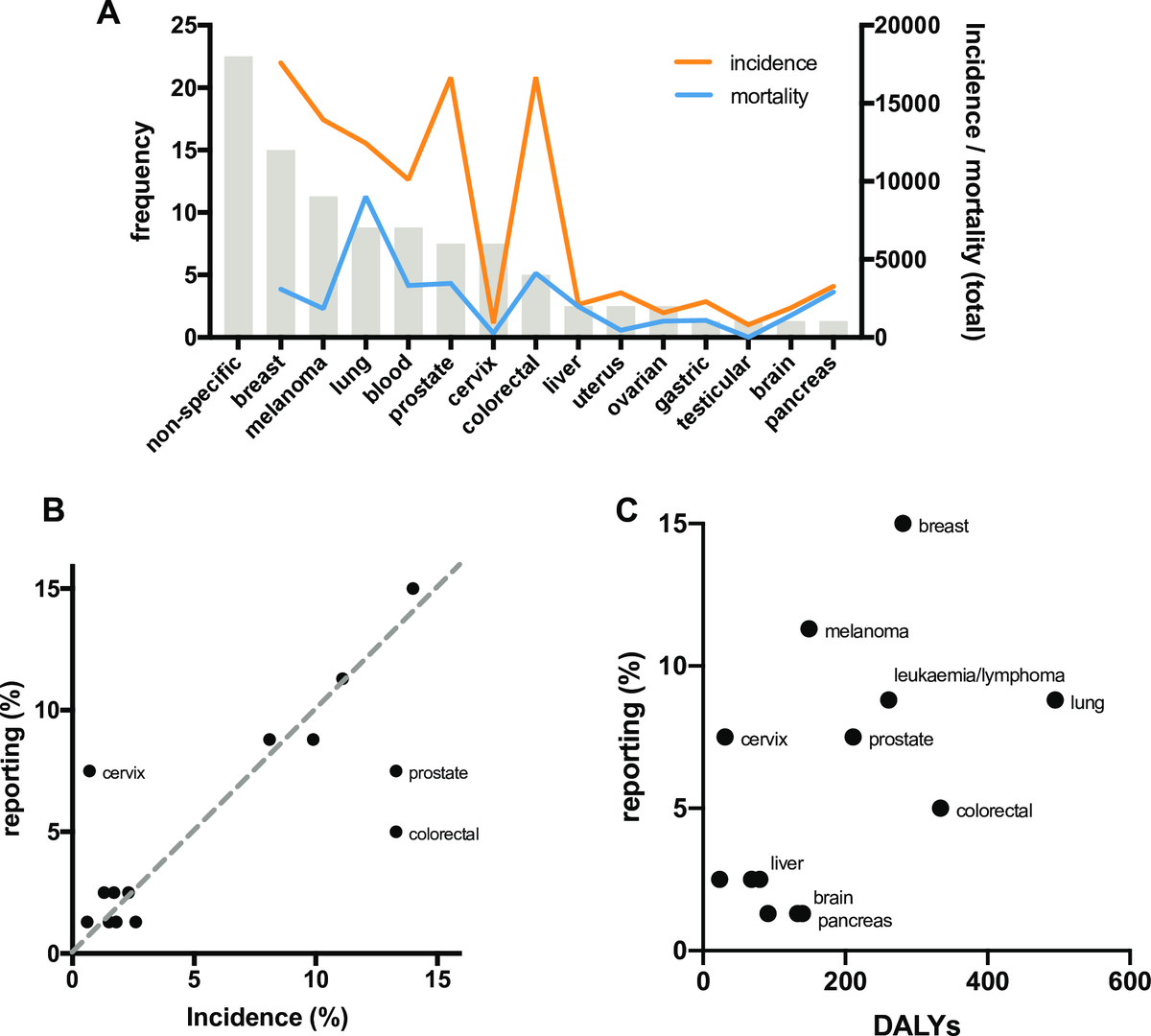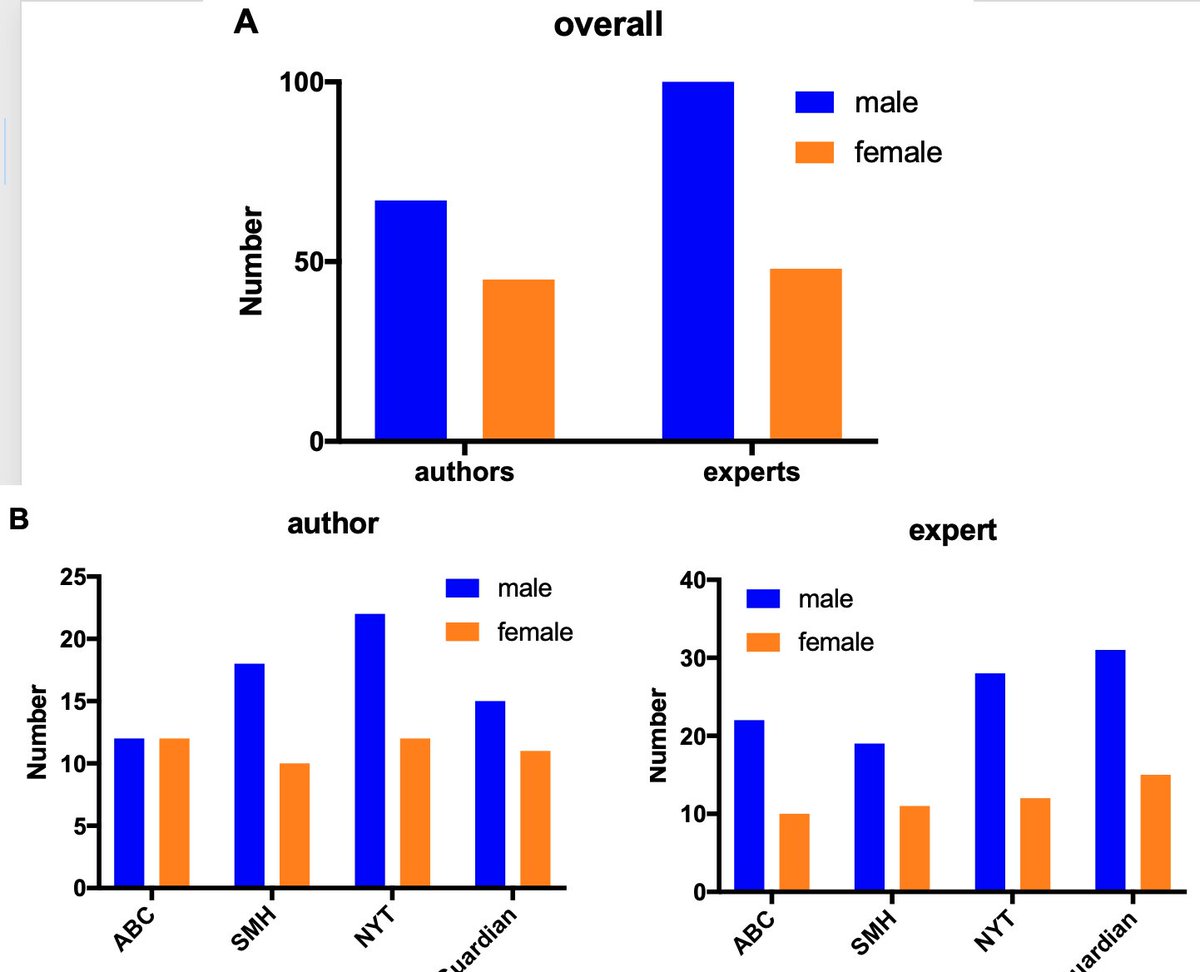Very pleased to (finally) see our paper (w/ @AmbergAmanda) analysing bias and quality in media reporting of cancer research published in @PLOS today.
There are a few interesting angles to explore here… 1/n https://journals.plos.org/plosone/article?id=10.1371/journal.pone.0242133
There are a few interesting angles to explore here… 1/n https://journals.plos.org/plosone/article?id=10.1371/journal.pone.0242133
We looked at online reporting of cancer research by @smh, @abconline, @nytimes, @guardian over 6 months.
What did we find?
1. There’s a skew towards stories on certain types of cancer disproportionate to their occurence or impact, and a some types of research dominate 2/n
What did we find?
1. There’s a skew towards stories on certain types of cancer disproportionate to their occurence or impact, and a some types of research dominate 2/n
We also found variation in the quality of reporting, with some news orgs doing better than others. Common problems included: not consulting independent experts, not linking to the research study, overgeneralisation, and failing to mention limitations of the study being discussed.
But the most striking finding of all was a huge skew in the gender of the scientists whose work was being reported on, and in the experts consulted in that reporting. An extension of the Matilda Effect (systematic under-recognition of female scientists) into #scicomm and media.
Journos at both ABC and SMH were very interested when we shared these data early on (it was already on their radar) but we want to do a follow-up to measure change. My sense is that things have already improved significanty, and I know it influenced the way I communicate.
Why is this important?
1. It helps guide contextual, accurate reporting of research, in turn helping the public understand complex science, maintain trust in publicly funded research, and assist informed decision-making.
1. It helps guide contextual, accurate reporting of research, in turn helping the public understand complex science, maintain trust in publicly funded research, and assist informed decision-making.
2. Gender bias may compromise high-quality coverage of research by limiting diversity of opinion, reinforcing stereotypes, and skewing public visibility and recognition towards male scientists.
One thing I really love about this paper is that @AmbergAmanda came to me with the idea as an undergrad (!) after doing a “Research or Rubbish" #scicomm exercise in my 3rd year Cancer Pathology course. And that exercise was sparked by a radio show I’d occasionally been part of
And a huge thanks to @adamgdunn @jjbw @sophiescott2 @Kaubo and many others for lots of formative discussions and helpful, constructive feedback along the way. 


 Read on Twitter
Read on Twitter





